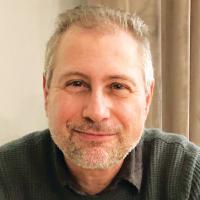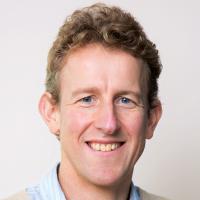
Charbel El-Hani
Higher-Level Agency and Directionality in Ecology and Earth Science
An organizational account of ecological functions
Subaward Principal Investigator
Federal University of Bahia (UFBA)
Charbel N. El-Hani is full professor in the Institute of Biology, Federal University of Bahia, Brazil. Coordinator of the History, Philosophy, and Biology Teaching Lab (LEFHBio) and the National Institute of Science and Technology in Interdisciplinary and Transdisciplinary Studies in Ecology and Evolution (INCT IN-TREE). Between January 2020 and July 2021, he was visiting researcher at the Centre for Social Studies, University of Coimbra, Portugal. He works in the areas of philosophy of biology, ecology, ethnobiology and science education research.

Paulo Inácio de Prado
Higher-Level Agency and Directionality in Ecology and Earth Science
An organizational account of ecological functions
Universidade de São Paulo
Paulo is a biologist focused on understanding ecological patterns as the result of interacting components of ecological and socio-ecological systems. He views statistical, computational, and mathematical models as hypotheses that enable us to inquiry nature. This, in turn, informs the creation of new models in a dialectical process. His primary research centers on interacting populations, exploring dynamics such as consumer-resource and competition relationships. Paulo is also interested in the role that models play in shaping ecological theory.

Hilton Japyassu
Higher-Level Agency and Directionality in Ecology and Earth Science
An organizational account of ecological functions
Federal University of Bahia
Undergraduate studies in Biological Sciences at São Paulo University (Brazil), with Master and PhD in Experimental Psychology at São Paulo University. Visiting professor at Saint Andrews University (Scotland, 2016). I have been a scientific researcher for 10 years at Butantan Institute (São Paulo - Brazil), a professor at the Catholic University (PUC - São Paulo) and now I am a full professor at the Federal University of Bahia for more than 10 years. I am associated to two Graduate Studies Programs (Ecology, and Biodiversity and Evolution), were I have either acted as a coordinator (Biodiversity and Evolution) or as part of the administration board (Ecology). I have also been the president of the Brazilian Society of Ethology, and my main research areas are behavioural plasticity, extended cognition, extended evolutionary synthesis, animal personality and social behaviour.

Clarissa Leite
Higher-Level Agency and Directionality in Ecology and Earth Science
An organizational account of ecological functions
My name is Clarissa Machado Pinto Leite, I am a postdoctoral researcher at the National Institute of Science and Technology in Interdisciplinary and Transdisciplinary Studies in Ecology and Evolution (Brazil). I was trained in ecology but my current research branching out into social sciences and it is related to inter- and transdisciplinary practices. I hold a bachelor’s degree in Biological Sciences (2006), a master’s degree in Ecology and Biomonitoring (2010), and a doctorate in Ecology (2016) from the Federal University of Bahia. My doctoral thesis had as central theme the occurrence of biodiversity thresholds in Atlantic Forest and was associated with a project on effects of the reduction of vegetation cover and historical biogeography on extinction thresholds. My main research interests are: Theoretical and Applied Ecology, Inter- and Transdisciplinary Practices, and Science Education Research.

Tim Lenton
Higher-Level Agency and Directionality in Ecology and Earth Science
Chance versus purpose in biosphere evolution
University of Exeter
Tim Lenton is founding Director of the Global Systems Institute and Chair in Climate Change and Earth System Science at the University of Exeter. His research is focused on modelling life’s coupling to the Earth system, biogeochemical cycling, climate dynamics, and associated tipping points. He co-authored the Planetary Boundaries framework and is an expert in ‘whole systems’ thinking. His books ‘Revolutions that made the Earth’ (with Andrew Watson) and ‘Earth System Science: A Very Short Introduction’ have popularised a new scientific view of our planetary home.

Stefan Linquist
Higher-Level Agency and Directionality in Ecology and Earth Science
Cluster Coordinator
University of Guelph
Stefan Linquist is Associate Professor of Philosophy at the University of Guelph. His work explores foundational assumptions in the biological sciences, in particular the disciplines of genomics and ecology. Recent publications investigate the various meanings of “epigenetics”, purported functions of junk DNA, the relationship between evolutionary and ecological modes of explanation, the existence of generalizations or “laws” in ecology, and the aesthetic value of biodiversity. He is coauthor of the book Defending Biodiversity: Environmental Science and Ethics (Cambridge University Press, 2017).

Juliomar Marques Silva
Higher-Level Agency and Directionality in Ecology and Earth Science
An organizational account of ecological functions
Federal University of Bahia (UFBA)
Graduated (2013), master (2015), and doctor (2022) in philosophy from Federal University of Bahia (UFBA). Was a substitute professor at the philosophy department of UFBA in 2017. During his graduation was a fellowship of programs like PIBIC (Fellowship Program of Scientific Initiation) and PIBID (Fellowship Program of Teaching Initiation). Member of the research group Philosophical Inquiries: Mind, Reality, and Knowledge. Currently, he is a researcher from LATAM - Bridges in the epistemology of religion (2020-2022), a project funded by the John Templeton Foundation and based on the University of Houston. Since his graduation is interested in epistemological questions, having worked with ancient skepticism (Pyrrhonism and Sextus Empiricus). In his doctorate wrote a thesis on the epistemology of disagreement. Besides, he is also interested in the virtues\vices epistemology. Nowadays, he is working as a postdoc researcher in the subproject "Toward a science of intrinsic purposiveness: an organizational account of ecological functions and its implications to ecological research and environmental ethics" from the umbrella project Agency, Directionality & Function funded by the John Templeton Foundation.

Maël Montévil
Agency and Directionality in Development, (Re)Conceptualizing Function and Goal-Directedness, Higher-Level Agency and Directionality in Ecology and Earth Science
An organizational account of ecological functions, Intrinsic purposiveness and the shaping of development, Open-ended evolution and organizational closure
Maël Montévil is chargé de recherche in CNRS, in République des savoirs, USR 3608, École Normale Supérieure. He is a theoretical biologist working at the crossroad of experimental biology, mathematics, and philosophy. He developed the framework of constraints closure and theorized biological historicity and its implications for theory and modelization with which to study current issues such as endocrine disruptors and, more generally, anthropocene's disruptions and our response to them. Montévil is the author of more than twenty-five peer-reviewed articles and a monograph with Giuseppe Longo: Perspectives on organisms.
